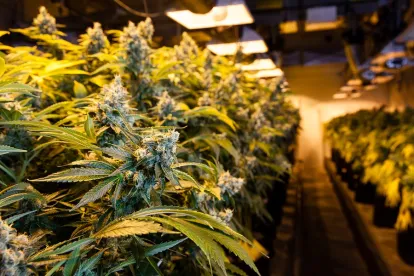The state-sanctioned use of marijuana continues to progress, with 33 states authorizing it for medical purposes and 11 states extending those protections to recreational use.
Despite this widespread adoption by the states, marijuana remains unlawful under federal law, and the Controlled Substances Act lists it in the category of drugs with a high potential for abuse. Recent case law, however, demonstrates a willingness by the courts to ignore federal law and to enforce state marijuana laws.
While the growing use of cannabis affects all employers, those in the manufacturing sector have particularized concerns related to safety-sensitive positions in the workplace. An impaired employee can cause serious disruptions to productivity and to the manufacturing process. In manufacturing, employees may be operating heavy machinery and other equipment, handling sensitive materials, or engaging in other tasks implicating workplace safety.
Employers can lawfully prohibit employees from being impaired at work and from possessing or using marijuana in the workplace. These expectations should be in a clear and concise policy that includes identification of the circumstances in which drug testing will be performed (e.g., post-offer/pre-employment, reasonable suspicion, post-accident, and random) in accordance with applicable state and local laws. The policy also should state the conduct that violates the policy, including failing a drug test, refusing to take a drug test, adulterating a specimen, and using or being under the influence of drugs in the workplace, and the disciplinary consequences for violating the policy.
Even with these heightened safety considerations, automatic termination of an employee for testing positive (if permitted under applicable law) or admitting use of medical marijuana can be risky. While there may be compelling safety concerns, the outside use of marijuana may not affect an employee’s work performance, and a confirmed positive drug test alone does not conclusively prove that the employee was using or under the influence of marijuana while at work. This is because the window for testing positive for cannabis is anywhere from three days to seven days (or longer) for urine and saliva testing and up to 90 days for the more sensitive hair testing. Accordingly, an employer may have only a legally defensible position for termination based on a confirmed positive test if the drug testing was administered based on reasonable suspicion the employee was using or under the influence of marijuana while in the workplace. However, if the employee is an authorized medical marijuana user, disciplinary action should be based on the employee’s behaviors at work, rather than the test result. This is because a medical marijuana user will always test positive. Thus, it is important that manufacturing supervisors be trained in identifying and documenting indicators of impairment, such as changes in an employee’s behavior, speech, coordination, or dexterity.
Many state medical marijuana laws have provisions prohibiting employment discrimination, but the degree of protection afforded to the employee varies by jurisdiction; manufacturers should seek guidance on these state-specific nuances. Even if the particular state medical marijuana law does not expressly prohibit discrimination, there is always the risk of a possible disability discrimination claim due to the medical marijuana user’s underlying medical condition. Virtually all of the conditions that qualify the employee to obtain a medical marijuana card constitute a physical or mental impairment, which also may qualify as a disability under the Americans with Disabilities Act and comparable state laws.
For employees who self-identify as using medical marijuana, Human Resources should be involved to assist in making an individualized assessment as to whether the marijuana use affects the employee’s ability to perform the job safely. Employers should review and update their job descriptions to ensure they enumerate the tasks associated with the role, and safety-sensitive duties in particular. Accommodations for medical marijuana use may include modification of the employee’s work schedule, temporary reassignment to a non-safety-sensitive position, and Family and Medical Leave Act leave or other unpaid leaves of absence.




 />i
/>i
